‘Elizabeth Taylor was impossible to be friends with’: Sian Phillips on her marriage to Peter O’Toole
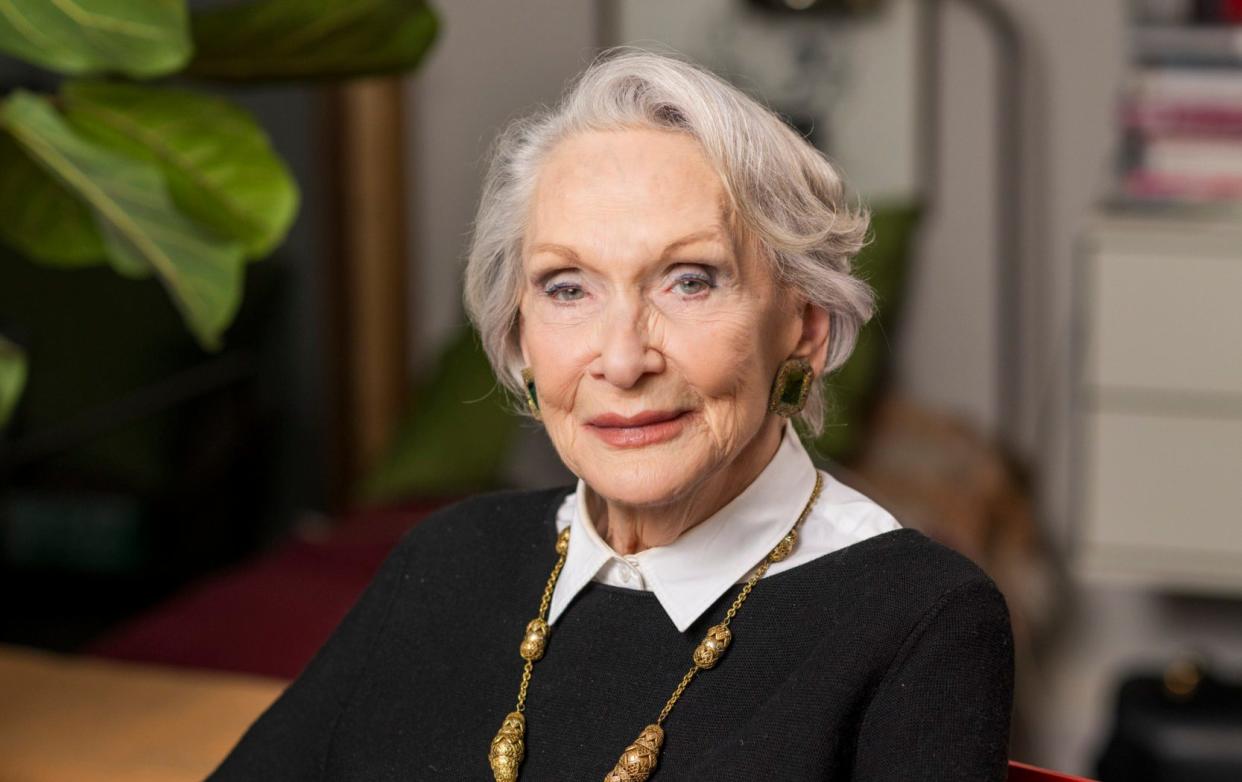
When Dame Siân Phillips was about seven or eight, she would often sleep on her bedroom floor in the village of Gwaun-Cae-Gurwen, in south-west Wales.
“I wanted to see if I could sleep and be cold at the same time because I thought it was something I’d have to do if I was going to be an actress,” she says, her voice an elegant blend of cultivated English and soft Welsh cadence. “I would hear my parents saying: ‘She’s so silly’. People in the village would say: ‘She doesn’t haven’t the stamina to be an actress – she’s so shy and quiet’.
“And I’d think: ‘No, I’m not’. Because I always knew from a very young age that I would be leaving Wales to never come back.”
Phillips and I are talking in her airy, modernist flat in the Barbican where she has lived by herself since just before Covid. Paintings cram the walls, plants jostle for light by the windows, Vitsoe shelving heaves with books. She is an incorrigible purchaser of art and furniture, although she regrets having to sell most of what she has collected over the years in order to move: she previously lived in a four storey house in Spitalfields.
The bathroom is lined with posters of her numerous stage appearances: The Night of the Iguana in 1965; Pal Joey in 1980. She is an astonishing 90-years-old and looks as fresh as a daisy despite a bout of conjunctivitis. “I had a knee operation earlier this year so it’s just as well I’m no longer in Spitalfields,” she says. “But I’m perfectly fine now.”
We’ve met to discuss a new documentary, Siân Phillips at 90, which will be broadcast on S4C on December 29 in Welsh (with English subtitles) and which celebrates the remarkable life and career of the girl from the Black Mountains whom no one imagined would become one of the greatest actors of her generation.
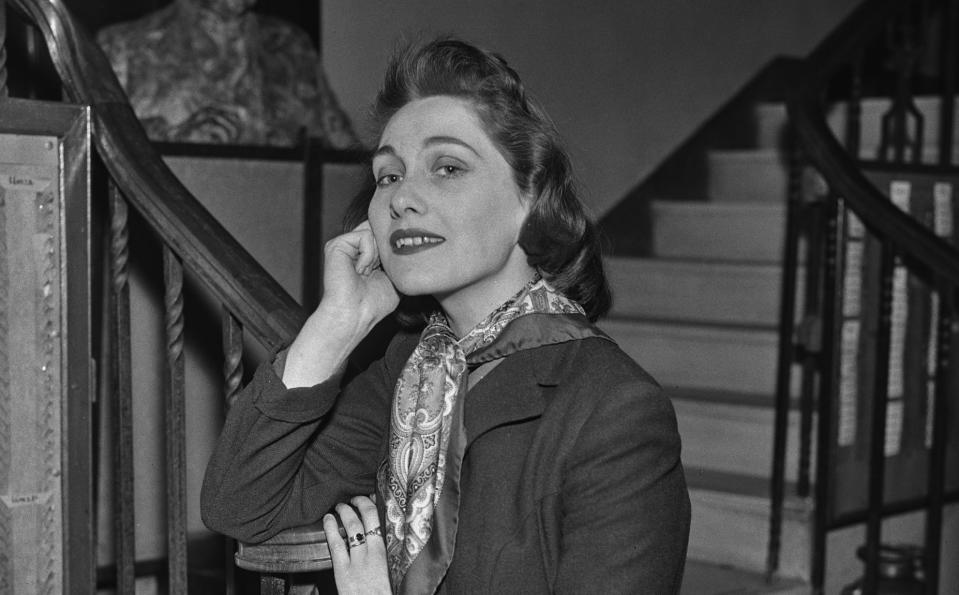
There are sumptuous shots of Phillips strolling across sunlit hillsides, and archive photographs of her in the 60s, impeccably dressed, radiating glamour. There is footage from some of her greatest hits, notably I, Claudius in 1976, in which she played with shocking ruthlessness the murderous Empress Livia, and contributions from Penelope Wilton, Nigel Havers, Eileen Atkins and Derek Jacobi, and rather fabulously, her hairdresser. And of course, a potted history of her wild, stormy, compulsive marriage to Peter O’Toole, the extravagantly gifted, self-sabotaging star of Lawrence of Arabia, who throughout their two decades together would regularly pop out for a pint of milk and disappear on a three-day bender. We’ll get to him in a bit.
First, though, Wales. The documentary is a love letter to Phillips’s home country. As a child, alongside her sleep training, she would also force herself to imagine not living amid the soaring splendour of the land in order to prepare herself for leaving. Now, it is the first thing she sees whenever she closes her eyes. “That and the stones on the paths by my old house,” she says. “The Black Mountains are my favourite place.” Does she have any political views on Wales? We are speaking not long after the Welsh first minister Mark Drakeford, a Labour politician, announced his resignation amid a slump in poll ratings and controversy over recent policies. “I’m not political. Although I know what I don’t like. Anti-Semitism for instance. But on [Drakeford] it would be wrong to comment.”
Phillips, an only child, was first taught to perform by her mother, a school teacher, who made her recite poetry each weekend in order to improve her memory. It worked: until extremely recently, Phillips has had no trouble learning her lines. She regularly attended the local eisteddfod, held in most Welsh villages on a Saturday and where miners would gather to critique poetry recitals, before winning the National Eisteddfod in speech and drama at the age of 11. It was an exceptionally fertile culture in which to grow up.
“People weren’t always educated because they had to go down the mines but they desperately wanted to be, so the eisteddfod was part of that, in a way,” she says. “I suppose there are equivalent night schools in England, but [that desire to educate oneself] feels less automatic. And how can anyone go to night school now with all the television we have?” And, it seems, without having the driving influence of Phillips’s mother, who insisted throughout Phillips’s many acting gigs at school that she maintain her academic education.
Her mother even insisted her daughter go to university, so from the age of 17 Phillips spent a couple of miserable years at Cardiff. Recently she’s been thinking about her mother a lot. “I admire her hugely. And it must have been terribly hurtful to her to know that as soon as I could, I’d be off.”
By 1955 Phillips was at Rada on a scholarship. The second she stepped onto the platform at Paddington she knew she was home. “London was filthy. Bomb sites everywhere. The food was too expensive, and the only meals I could afford were disgusting. And I absolutely loved it.”
At Rada, she says, she was “terrified of everyone. The staff were terribly intimidating. And everyone spoke with a slightly smarter accent.” This was despite Phillips speaking impeccable English, having worked as a newsreader for BBC Wales while at Cardiff . She worked extremely hard but also, it seems, had an awful lot of boyfriends. “They kept asking me to settle down with them and have children,” she says. “Whenever they did that I knew it was time to leave.”
And then she met O’Toole, the rambunctious actor with the wolfish charm. Both were in relationships, but both too were free spirits and they spent hours together talking, sometimes all night. “We always kept our clothes on,” Phillips says. “He was not a ladykiller by any means. He didn’t approve of people sexually messing around. Only when we got rid of our respective partners did we do that sort of thing. And it was thrilling, wonderful.”
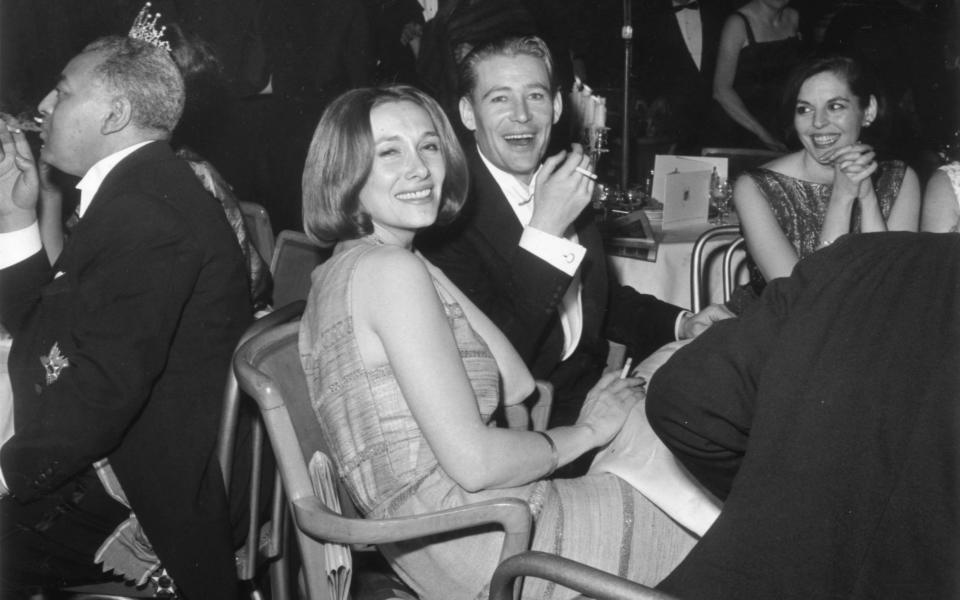
At his insistence they married, in 1959, even though Phillips had never imagined that sort of life for herself. In 1960 their first daughter, Kate, was born. Almost immediately everything changed. O’Toole, by now on the verge of major stardom, demanded Phillips remain at home, cauterising a career of glittering promise (Phillips – who at that point had been courted by Hollywood after a string of major stage successes – was forced to only take roles that kept her under the radar). He was consumed, too, by sexual jealousy and although he had known about Phillips’s previous relationships, once they were married would denounce her as “disgraceful” and “immoral”. The rows were volcanic. When her mother moved in to help with the childcare (by 1963 they had had a second daughter, Pat), Phillips built a soundproof wall in the living room. And then there was the drink. “I realised from the beginning he drank a lot. But everyone drank a lot back then. I didn’t realise it was a problem until way later.”
She was terribly miserable, lonely, and lost. Did O’Toole ever hurt her? “No, but I did feel scared once or twice. I could see he held it back. He would destroy things rather than people. Break things. I minded that dreadfully, because, since I couldn’t work, I worked hard on the house to make it beautiful.
“Occasionally, if I had done a show, because I had managed to have a few accidental successes, he could see that it was not smart to be jealous. So he would get drunk in order to do the damage. Then the next morning he would say: ‘Did I do anything awful? Was I very bad last night?’ Because he couldn’t say it sober.”
His drunken exploits were legendary, although because of his blinding charisma, people were happy to protect him. One night the police rang Phillips to say they had picked him up in Bristol. “He’d driven his car into a van full of sleeping policemen. But they said to me: ‘Don’t worry. No one need ever know’.”
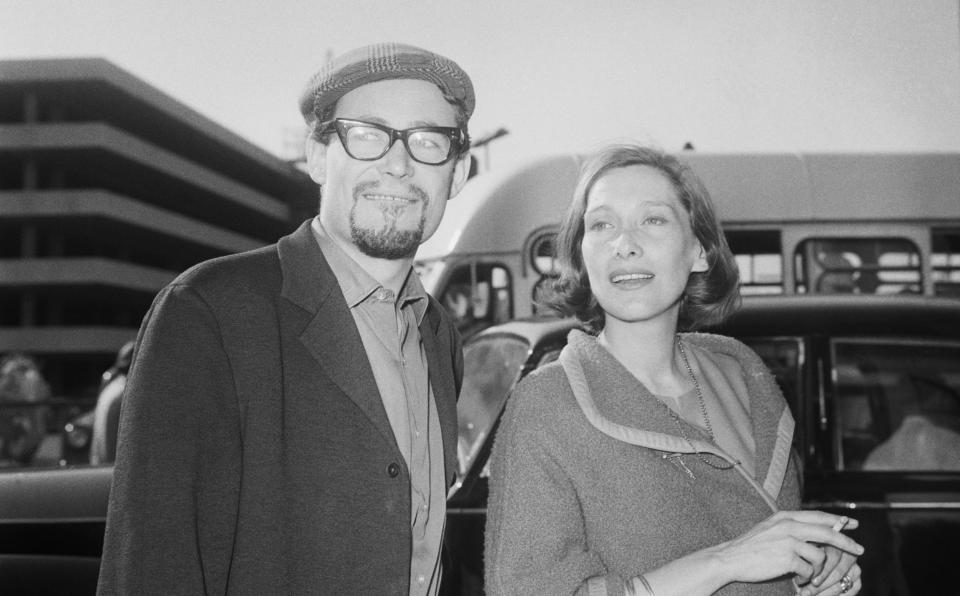
The documentary confronts what today would be defined as an abusive relationship, but glosses over the actual details, although it does refer to the evening Phillips came home to find Richard Burton and Elizabeth Taylor passed out with O’Toole on the floor. The two couples – by this point both considered the height of acting chic – were friends of sorts; Phillips had known Burton since they were teenagers in Wales, and his brother lived near to the O’Tooles in Hampstead so he and Taylor would often drop by. “Richard was always a bit sheepish with me,” says Phillips. “Because he knew he had sold out by marrying a movie star and becoming very rich.”
Taylor, she says, was “impossible to be friends with. O’Toole thought she was stupid but I think that was envy. She loved being mobbed. And she used to wear this huge pudding-shaped turquoise hat. One evening we went to St Martin’s Lane to see a play. During the interval, Elizabeth insisted on going to the Salisbury Pub across the road. By now everyone knew she was at the theatre and so we had to battle our way through the crowds.
“It was during the time when everyone hated her, because they were on the side of Sybil [Burton’s ex-wife]. They were saying things like, ‘I’m so near to her I could spit at her’. I was quaking, but she wasn’t ruffled in the least. By the time we got to the pub, it was time to turn back again. O’Toole was furious. He said: ‘If only you took that f—ing busby off your head we’d have had a much better time.”
Phillips is a natural clothes horse (she’s wearing a black dress and perfectly matching jewellery today) but insists she could take or leave the glamour of her life back then. “It was just a fact of life.” She adored O’Toole with all her heart. I suspect a large part of her still does. Much of their marriage was blissful, but she went to great pains to protect her daughters from the parts that were not and even today finds it hard to talk to them about it (Kate is now an actress; Pat stays out of the public eye).
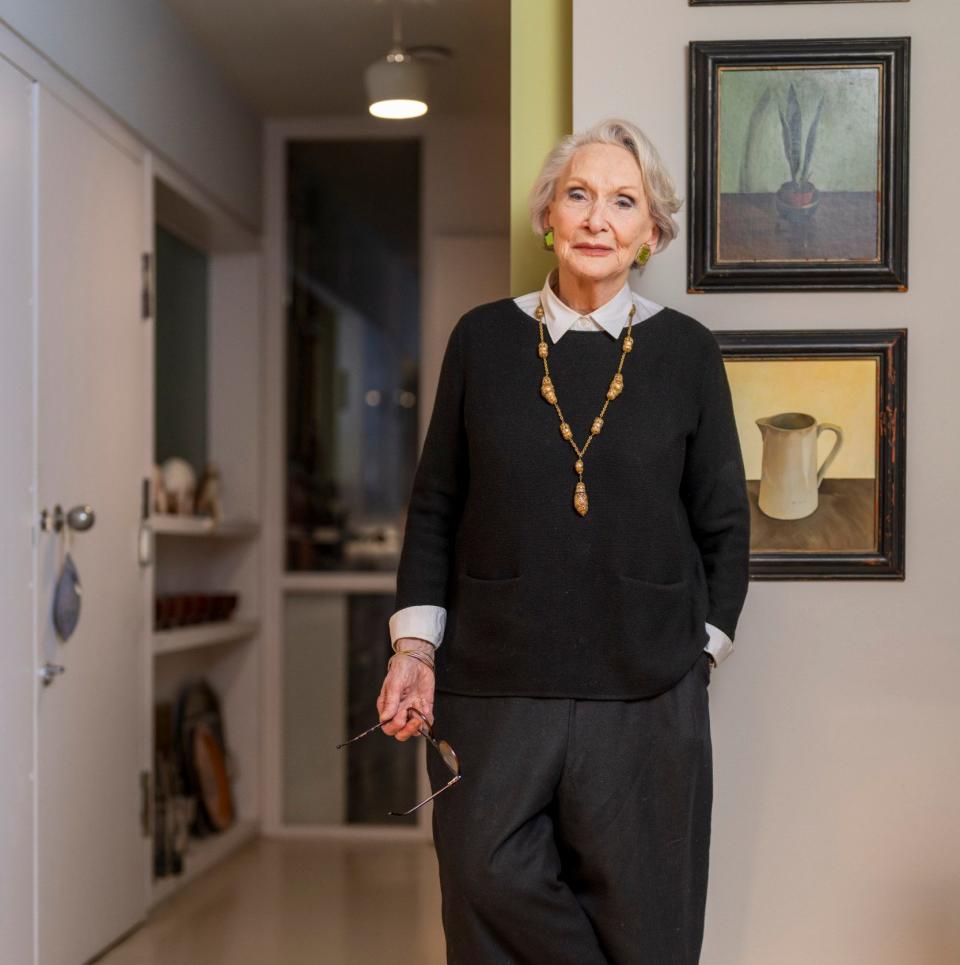
Exhausted and almost ill with the strain, she eventually left him in the late 1970s, having an affair with the actor Robin Sachs, whom she would marry in 1979, in order to force O’Toole to let her go. He never spoke to her again. “I’d missed that golden period in an actress’s career but I was not bitter. He stopped me from playing parts that would have altered my life. But then he was probably right that if I had taken them, it would have ruined ours.”
Happily, the roles – and acclaim – started tumbling in. On screen she played Clementine Churchill and starred opposite Alec Guinness in Tinker Tailor Soldier Spy. On stage at the National Theatre, Lady Britomart in Major Barbara and Madame Armfeldt in A Little Night Music. She also, eventually, had a bout of therapy. “It was a 16-week course that teaches you to take control of what you want. I have a tendency to not do that. If I go out to buy brown gloves and they only have green, I’ll take the green.”
I put it to her that, on the contrary, she comes across as someone who has always been pretty single-minded about what she wants. “I suppose I never gave up. Even when I was having to take a very quiet back seat [in my marriage] I still maintained a level of work. I went to the theatre a lot and thought about plays. I always knew it was the right life for me.”
What has she learned about marriage? She has been married three times: the relationship with Sachs didn’t last; before she went to Rada she was briefly married to Don Roy. “Nothing! And I’d probably do it all over again with O’Toole. But I think on the whole, marriage is not for me.”
She is rather self contained and looks after herself with admirable self discipline: pilates, daily walks. People, she says, often come up to talk to her in the street, although not, she thinks, because she is Siân Phillips “but because I’m old!” Every so often she has dinner with Penelope and Eileen, both great friends. She looks amazing. She continues to work, popping up this year in the television shows Good Omens and The Chelsea Detective. But for the first time she hints she might soon stop. “I’m doing a short film next year and, I hope, one last play. I’m not one of these people who say I’m never stopping. I love to work, but finally, I think I can live without it now too.”
Siân Phillips yn 90 (Sian Phillips at 90) airs on December 29 at 9pm on S4C, Clic and BBC iPlayer


